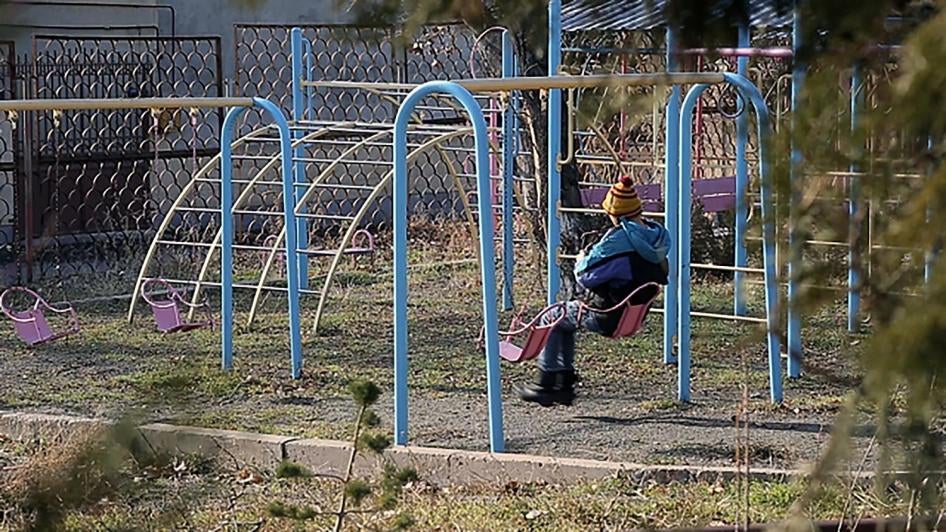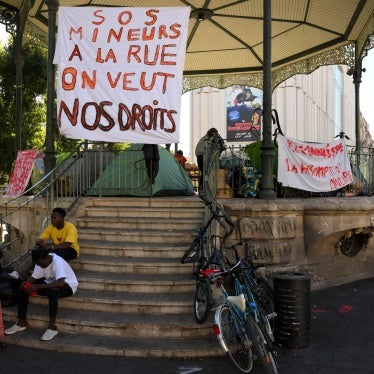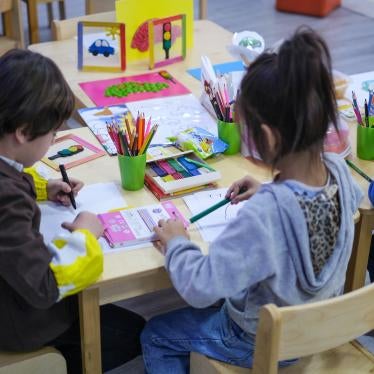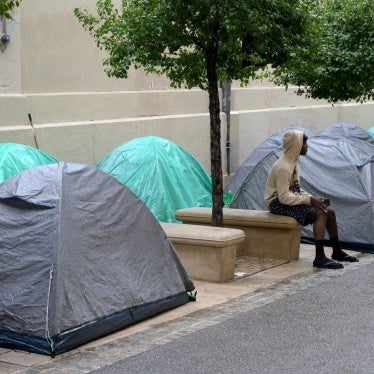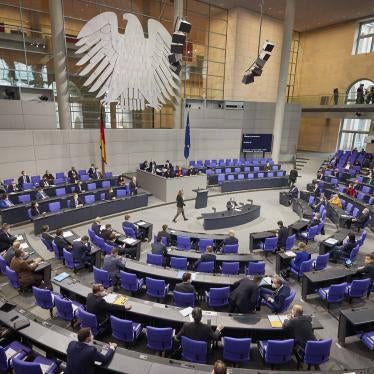Allegations of illegal adoption of Armenian children are putting Armenia’s institutions for children in the global spotlight. In recent weeks, Armenian authorities said they opened several criminal investigations into the illegal adoption of over 30 children by foreign families. Several Armenian orphanage directors and other officials have been implicated in the alleged crimes, supposedly for financial gain.
It’s not the first time Armenia’s children’s institutions have drawn international attention. Here’s why. Many studies show that children, when separated from families and placed in institutions, have stunted physical, intellectual, emotional, and social development. In 2017, Human Rights Watch documented how, due to the lack of services to help families raise children at home, impoverished Armenian families find it difficult to care for children, especially those with disabilities, and may place them in institutions. Donors and the government have contributed to the problem by pouring money into institutions rather than community-based services.
Around 90 percent of children in residential care in Armenia have at least one living parent.
At the end of the day, Armenia should be investing less in institutions and investing more in community-based services for families. This would both curtail corruption and abuse at institutions, and help families care for their children at home.
Armenian authorities have committed to doing this. But five institutions still operate in the country, including three for children with disabilities that were not included in governmental deinstitutionalization plans.
The recent criminal investigations involve allegations that medical staff at certain maternity hospitals forced pregnant women who had wanted abortions to give birth, and then consent for their children to be adopted. The children were then placed at orphanages, from which they were adopted. The investigations also allege that these officials fabricated illnesses for the children, or exaggerated any illness they had, to hinder adoption within Armenia and to hasten international adoption.
In other cases, orphanage directors allegedly forced women to give consent for the adoption of their children living in the institutions.
Although the outcomes of the investigations won’t be known for some time, they underscore a grave concern: that closed institutions can make children easy targets for child traffickers.
While the government investigates these cases, it should also accelerate efforts to support families to care for their children, including children with disabilities, by moving services out of institutions and into communities.
